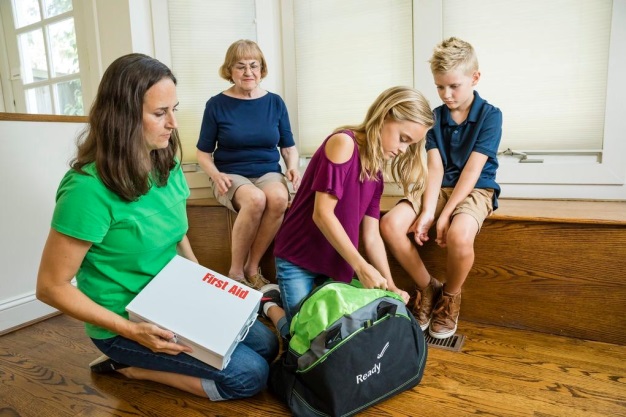Make A Kit. Have A Plan.
Put together an emergency kit that will sustain you and your family for at least 3 days.
Here’s some things to think about while you make your emergency plan:
How do you receive emergency alerts and warnings?
Sign up for CurrituckAlert! Up to date, accurate notifications that will help you and your family. Visit CurrituckAlert.com for more information.
What is your evacuation and shelter plan?
Currituck County DOES NOT offer pre-hurricane shelters. It is safer to move inland to higher elevations. Currituck County Emergency Management will work with other North Carolina Emergency Management partners to establish a host county for our evacuees.
Do you have important phone numbers written down in case your mobile device isn’t available?
The “Currituck County Communications Phonebook (PDF)” starts you off with some important Currituck County numbers and space to fill in your own important phone numbers.
- One gallon of water per day per person
- Non-perishable foods such as, crackers, granola bars, and dried fruit
- Flashlight and extra batteries
- First Aid Kit
- Prescription Medications
- Phone charger(s)
- NOAA weather radio
- Infant items such as diapers and formula
- Cash
- Personal hygiene items
- If you have a pet have food, water and supplies – Pet Emergency Kit
- Agua – Un galón por persona por día (es preferible tener un suministro de agua para una semana)
- Alimentos pre-cocidos, no-perecederos
- Linterna con baterías adicionales
- Medicamentos esenciales y espejuelos
- Radio del tiempo NOAA
- Suministro para bebés: fórmula, biberones, chupetes, jabón, polvo de bebé, ropa, sábanas, pañuelos desechables de bebé, pañales desechables, comidas enlatadas y jugos.
- Dinero en efectivo y cambio (monedas)
- Jabón para lavado de cabello, pasta y cepillo de dientes
- Papel sanitario y productos de higiene femenina
Develop A Family Emergency Plan
- Determine the safest place in your home in the event of severe weather.
- Choose a nearby meeting place if you have to leave your home quickly.
 Choose an out-of-town family member or friend to contact in the event that you get separated from you family or you cannot reach each other.
Choose an out-of-town family member or friend to contact in the event that you get separated from you family or you cannot reach each other.- Know what you will do with your pets in an emergency.
- Learn ahead of time how to cut off the water, gas, and/or electricity at your home. Do not attempt to cut gas back on after you have cut it off; call a trained expert.
- Gather copies of important family documents. Consider keeping these documents in your emergency kit. Examples of documents you might include are:
- birth certificates
- social security cards
- marriage license
- passport
- will
- insurance policies
- Take photos or video of your home and personal belongings for insurance reasons.

